Harnessing Nature to Push the Limits of Human Experience
Sometimes, it’s like the more we learn about the human body, the less we know about it. Every year, discoveries are made that send the scientists, sports nutrition experts, and coaches all back to the drawing board to rewrite the “rules” and deliver ever-more complicated products.
Following the path of common sense, many are turning back to nature not only to survive, but to excel. A working understanding of your body is all that’s needed to begin to leverage natural supplements for greater strength, endurance, and experience. And we’re talking about everybody here, from free divers to ultra marathon runners to mountain climbers, and everybody in between.
So what is a performance supplement?
Natural supplements can take many forms, like the crushed powder of a dried mushroom, to carefully-extracted essential oils. They interact with the body in a wide array of different ways, and they have a wide range of outcomes. The general effects of these supplements tend to support health and wellness, and with the right knowledge, can be leveraged to naturally enhance athletic performance.
Look, there’s no secret to getting stronger, faster, or better. It’s a lot of hard work and discipline. It’s having a plan, and sticking to a routine. It’s in the routine where sport supplements can be applied. With some supplements, it makes sense to keep a steady supply moving through your veins. It can give you an edge over someone who isn’t doing that. Other performance supplements simply work because they equip and enable you to keep hitting the bricks, day in and day out.
In this article, we’ll survey some topics related to performance supplements, and provide an overview of those which we have found to be the most effective.
- Do sports supplements actually work?
- How can supplements improve performance?
- What supplements do athletes take?
- What supplements should you take when working out?
- What are the best supplements for sleep?
- Stevia vs. sugar in performance supplements
- Are organic supplements worth it?
- What supplements help to boost performance?

Do sports supplements actually work?
Yes! There are supplements on the market for any edge you might be looking for. Whether you want to improve your speed, add muscle mass, or decrease your body fat, there is something out there for you. There’s a few levels of safety when it comes to supplements, though, and the ones you should always stick to are the ones in the ‘green’ category. If a supplement is green, that means its effects are well-supported by scientific evidence and it is safe to use. Nothing less should ever go into your body. The reason that sports supplements are proven to work is because they’re made up of natural ingredients that benefit specific areas of your body and its performance.
How can supplements improve performance?
Supplements improve performance by optimizing specific bodily functions. For example, a marathon runner looking to run faster, which means they would incorporate both vitamin D and caffeine into their diet, since these two substances have been correlated with energy and speed*. In a cyclist’s case, if they want to improve endurance, they would incorporate supplements that serve as anti-fatigue agents, which means that you can work harder for a longer period of time. It’s all about knowing what supplements target what area of performance and using that knowledge to your advantage.
What supplements do athletes take?
Here are some supplements that athletes swear by:
- Caffeine - this substance as a supplement helps provide energy to the body because it stimulates the nervous system.*
- Electrolytes - these are negatively and positively charged ions already present in your body that regulate bodily fluid and control nerve impulses. By adding them in supplements, you boost hydration and therefore boost your performance.*
- Taurine - this assists in brain, eye, and muscle health, but athletes concentrate mostly on the muscle health. In order to have productive workouts, muscles need to be in a good, hydrated place conducive to blood flow.*
- Vitamin K2 - this helps encourage blood flow throughout your entire body, but namely to your heart. By keeping your heart beating strong during a workout, you get even more out of it.*
What supplements should you take when working out?
These are some supplements you should consider when working out:- Electrolytes - These are great for maintaining hydration levels both during and after a workout.*
- Branch Chain Amino Acids - BCAAs aid in muscle density and can speed up recovery time after an especially grueling workout.*
- Vitamin/mineral supplements - these can support the condition of your body’s cells, which promotes both muscle growth and performance quality.*

What are the best supplements for sleep?
-
Melatonin - this is a substance that your brain already makes to help you sleep, but taking a supplement can only assist in this process. It helps you fall asleep and improves your quality of sleep.*
-
Magnesium - this helps quiet the mind and body, which makes it easier to fall asleep and stay asleep.*
-
Valerian Root - this herb has been used since ancient times to both fall asleep and stay asleep. It can be consumed in either capsule form or steeped in tea, which can be especially relaxing.*
Stevia vs. sugar in performance supplements
Stevia is made from a plant that’s native to Paraguay and Brazil, and it’s a great substitute for sugar when it comes to everyday eating and performance supplements. It has a similar sweet taste, but less of the negative effects. It can help support blood glucose levels, but doesn’t come along with the same crash that sugar does a few hours after you consume it. It also doesn’t carry the high amount of calories that sugar does - which means that you won’t lose your gains.
Are organic supplements worth it?
Yes! Organic supplements are always the better choice over synthetic or isolated vitamins because they contain nutrients that are already found in food, in your body, or both. Inorganic supplements contain synthetic nutrients, and those will never match organic, natural ones when it comes to how your body absorbs, retains, or utilizes them.
What supplements help to boost performance?
Antioxidants
There are plenty of foods out there that are rich in antioxidants, but another convenient way to incorporate them into your diet is through supplements. Your body produces something called free radicals when you exercise and digest food, and antioxidant supplements can help regulate them. Taking these supplements can prevent damage caused by free radicals and help you live a longer life that’s free of disease*.BCAAs
There are twenty different amino acids that make up the proteins of the human body, and out of those twenty, nine are considered essential. And out of those nine, three are branched-chain amino acids - and they’re called leucine, isoleucine, and valine. These are the natural BCAAs. ‘Branched-chain,’ it refers to the chemical structure of the amino acids. This branched-chain can be found in animal products like meat, dairy, and eggs, and also in supplements. Some benefits of natural BCAAs include muscle growth, decreased soreness, reduced fatigue, and muscle breakdown prevention.*Caffeine
Caffeine acts as a stimulant to the nervous system, and it’s found naturally in plants such as coffee beans, tea leaves, and kola nuts. The caffeine found in supplements is not the same thing as pure caffeine powder - they’re safe to take in regulated doses and can help boost energy and focus throughout the day*.Electrolytes
Electrolytes are charged minerals that our bodies need to keep moving. We get a good number of these from food and drink, but many times, we don’t get enough. Sodium, magnesium, and potassium are three electrolytes that play major roles. Sodium helps to maintain the water and electrolyte balance of the body, magnesium is necessary for normal nerve and muscle function, and potassium plays into both - it holds a key role in the performance of the nerves and muscles and also regulates the water and electrolyte balance. Getting an adequate amount of electrolytes is essential for hydration and maintaining a good energy level as you work out.GABA
GABA, or Gamma-Aminobutyric acid, is a naturally occurring amino acid that works in the human brain as a neurotransmitter, AKA a chemical messenger. This specific neurotransmitter decreases activity in your nervous system, which may prevent the feeling of anxiety, stress, or fear*. It might also help in preventing seizures.*
Lion’s Mane
The lion’s mane mushroom is a powerful combination of nutritional mushrooms that supports memory, mental clarity, focus, and optimizes both nervous and immune system health. By taking organic lion’s mane in the morning, you may find yourself with less of a need for that morning cup of coffee. It gets rid of that brain fog - that can either hit first thing in the morning or around that bewitching 3pm hour - and helps you stay focused for longer periods during the day.*Taurine
Taurine is a naturally-occurring amino acid that’s found in many foods, and it also shows up naturally in the human body. It’s mostly concentrated in the brain, eyes, heart, and muscles, which means that taking a taurine supplement can aid in promoting the health of those specific areas. People with heart disease or diabetes may especially benefit from taking a taurine supplement.*Theanine
Theanine is typically found in tea leaves and a type of mushroom called Bay Bolete. By taking a supplement form of this amino acid, you promote the feeling of relaxation without the onset of drowsiness. It can help you destress and unwind at night, or it can lessen feelings of nervous energy during the day.*Valerian Root
Valerian root has been used for centuries as an herbal remedy for sleep problems or anxiety related issues. It comes from a plant called Valeriana officinalis that grows throughout the grasslands of North America, Asia, and Europe. It can assist in lessening tension, anxiety, and it allows your body to relax in time for sleep each night.*Vitamin B12
Vitamin B12 is a naturally-occurring and important component in the human body. It assists in the production of red blood cells, nerve cells, and DNA. When there’s not enough Vitamin B12 in the body, it can cause someone to feel tired or weak - and that’s largely to blame on anemia (a deficiency of red blood cells). If there’s not enough Vitamin B12 behind the scenes, then there aren’t enough red blood cells being produced. Vitamin B works well with D and K because they promote cardiovascular health and the strength of the blood pressure that flows through your heart.*Vitamin C
Vitamin C plays a crucial role in the way that your body functions. It supports skin health and boosts the immune system, all the while functioning as an antioxidant to protect your cells against potential damage*. Vitamin C is found naturally in foods like oranges, bell peppers, and strawberries, but consuming it in supplement form guarantees that you’ll never go a day without it.Vitamin D3
A Vitamin D3 deficiency doesn’t mean good things for the body. Without an adequate amount of D3 in the body, you’re at more of a risk for bone fractures, anemia, and falling sick more often - because your immune system isn’t as strong. Supplementing the vitamin, on the other hand, can improve muscle strength, power, and recovery time.Vitamin K2
Vitamin K2 has everything to do with your heart and bones - some studies have even found it to benefit the prostate and the brain as well. When you’re working extra hard during training, your heart is pumping overtime, and it’s possible that your performance could decrease. When it comes to cardiovascular endurance, Vitamin K2 can come in handy because it boosts your heart’s stamina and evens out the downward trend when going gets tough.*Zinc
Found naturally in humans, zinc is the second-most abundant trace mineral in your body, coming in after iron. This mineral can enhance your immune system, regulate blood sugar, and promote eye, heart, and skin health.**These statements have not been evaluated by the FDA. Protekt products are not intended to diagnose, treat, cure, or prevent any disease.
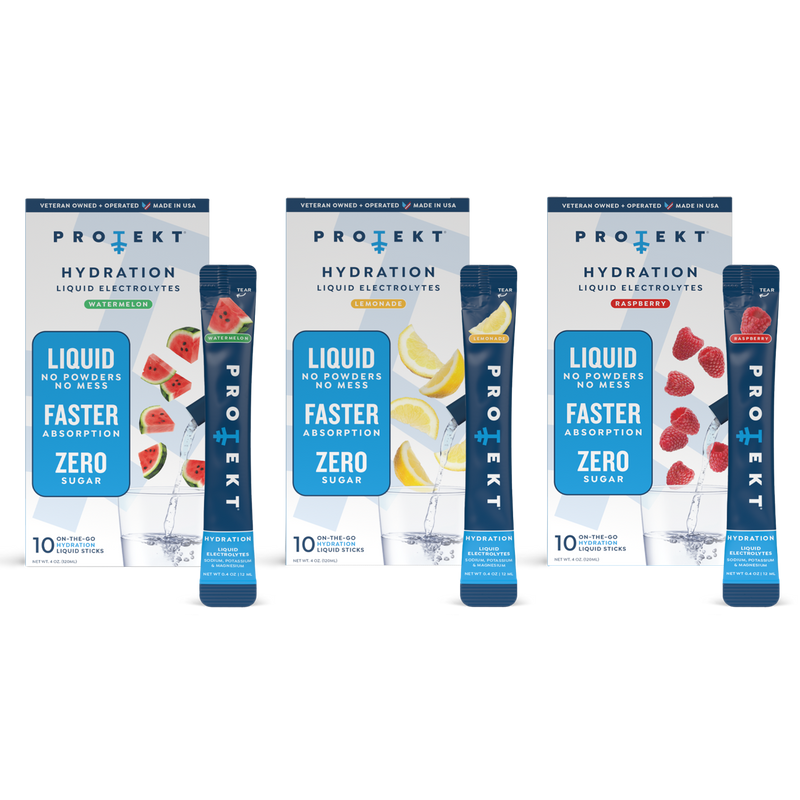
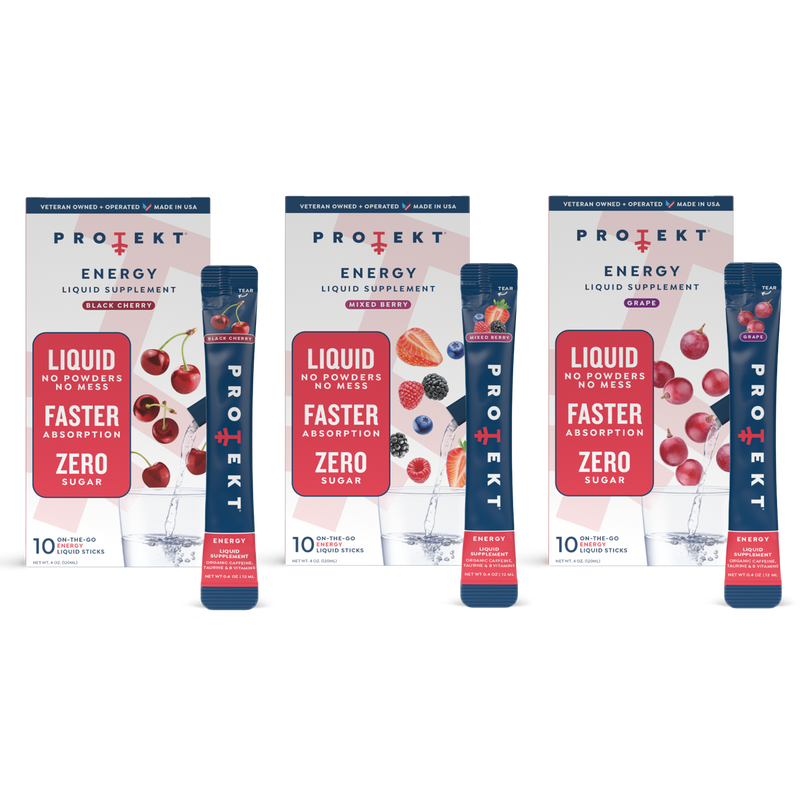
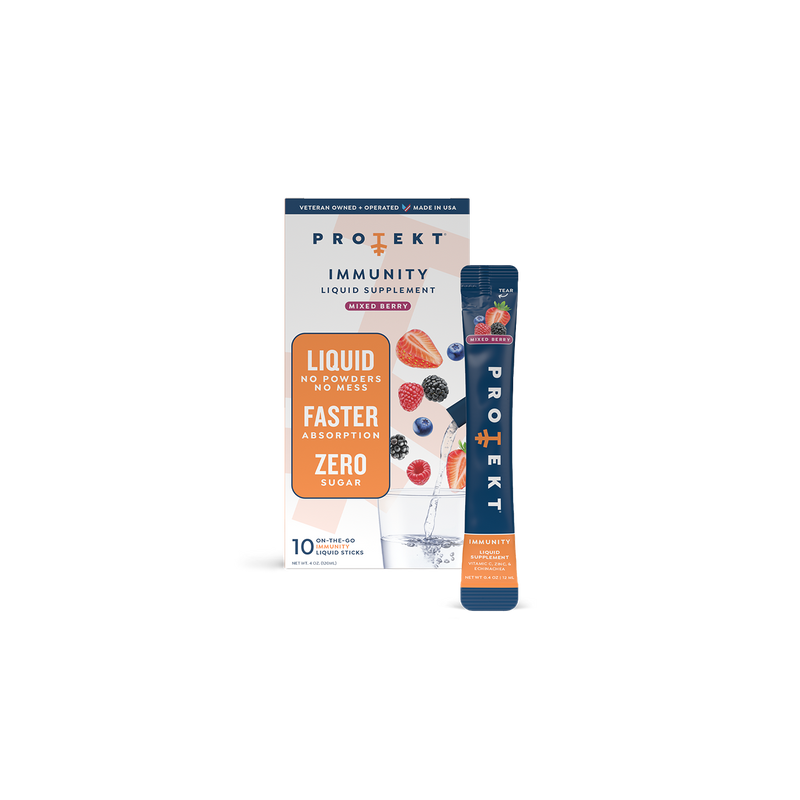
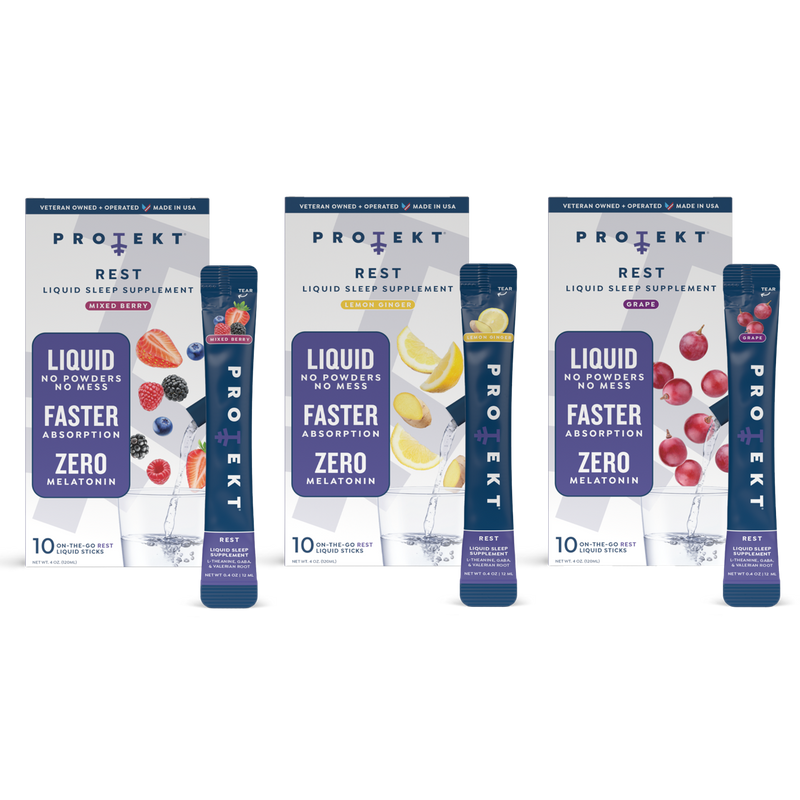









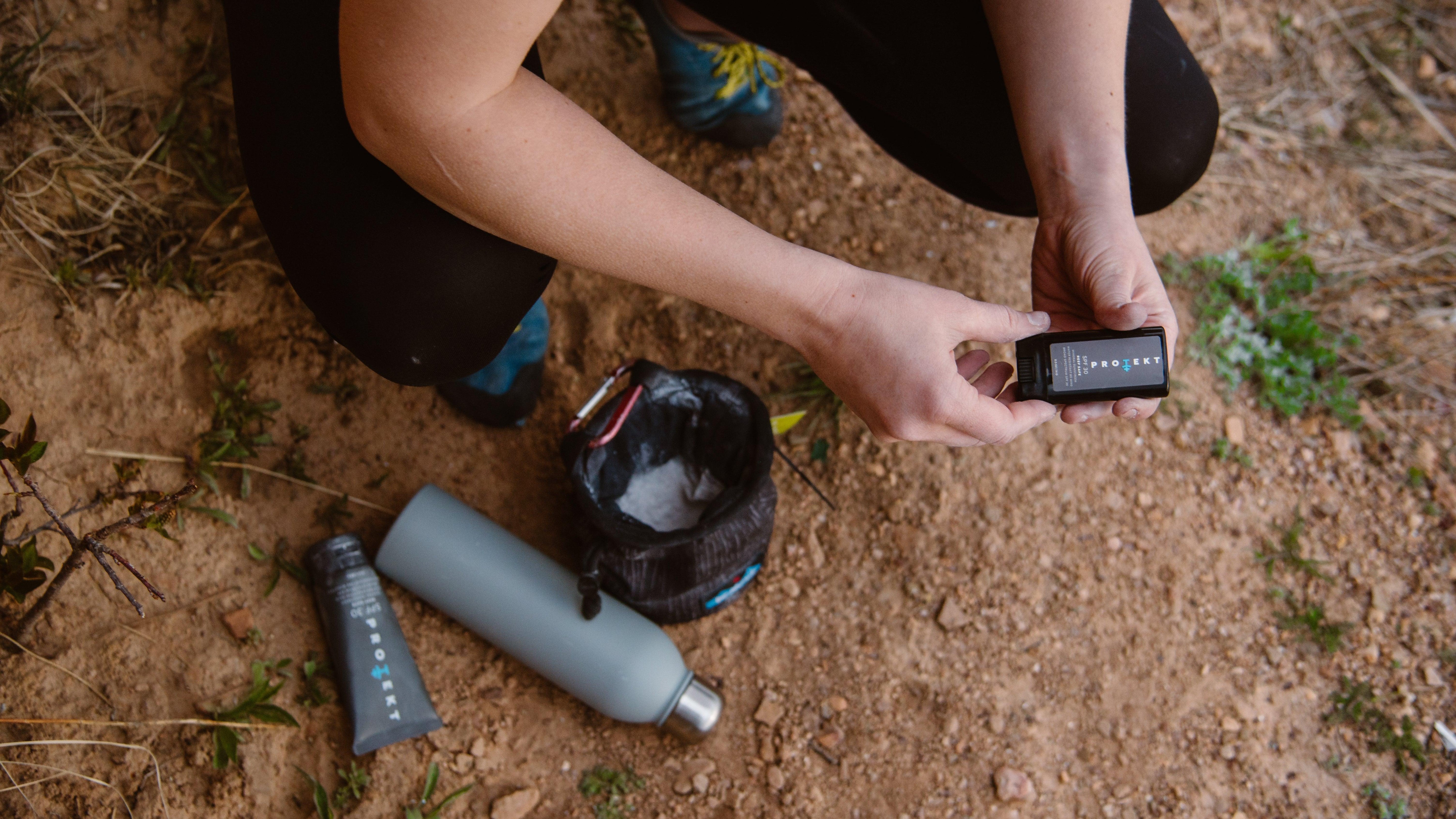
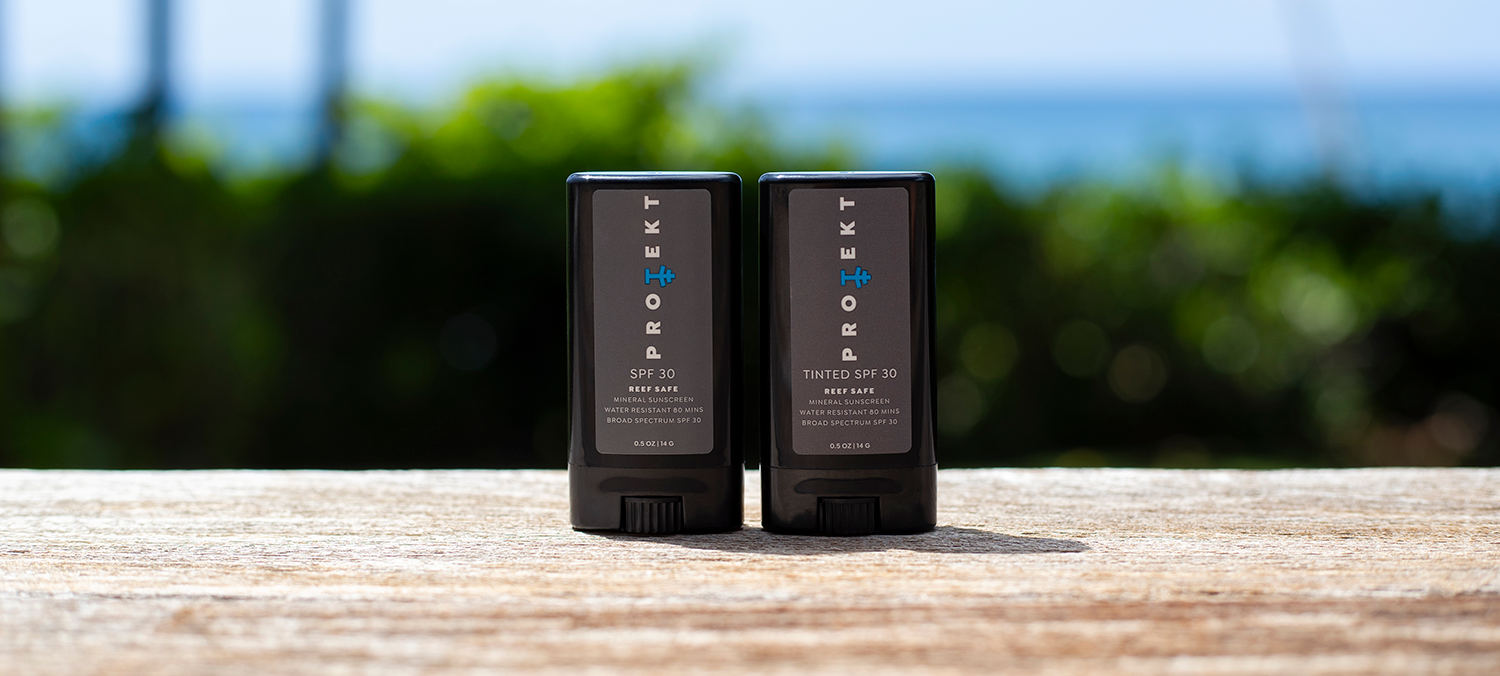
Leave a comment
All comments are moderated before being published.
This site is protected by hCaptcha and the hCaptcha Privacy Policy and Terms of Service apply.